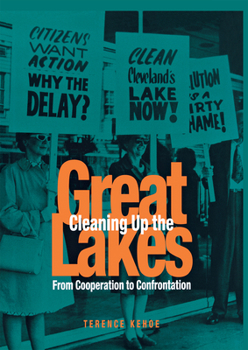Cleaning Up the Great Lakes
Select Format
Select Condition 
Book Overview
Before the 1960s, state regulatory officials responsible for protecting Great Lakes water quality followed a policy of "cooperative pragmatism" that was based on the principles of voluntarism, informal cooperation, and localism. During the 1960s, however, this regulatory system splintered as a result of increasing levels of pollution, the rise of environmentalism, and entrepreneurial politics at the federal level. Grass roots protest activity in the major cities of the Great Lakes Basin, supported by local media coverage and sympathetic members of Congress, led to federal intervention to "save our lakes."
Gradually, a new system of regulation emerged that was characterized by formal procedures, legal conflict, and national standardization. In the past, state regulators had based individual waste treatment requirements on the receiving water's primary uses, economic considerations, and other local factors. But new federal legislation established a national discharge permit program that forced regulators to seek the maximum treatment feasible, as determined by officials in Washington.
Environmental and policy history intersect in this unique case study of national water pollution control policy during the seminal decades of environmental activism. Kehoe uses events in the Great Lakes region to investigate broader changes in American public policy during the era of public interest that extended from the late 1960s through the early 1970s. These include the nationalization of policy, the breakdown of trust in institutions, and a greater reliance on formal legal mechanisms to resolve conflict and perceived injustices.
Cleaning Up the Great Lakes will appeal to readers who seek to understand the changing nature of public policy in recent American history. This compelling book will also interest those wishing to learn about the Great Lakes ecosystem, environmental issues, and environmental regulation.
Related Subjects
Earth Sciences Economics Engineering Environment Environmental Economics Environmental Science History Political Science Politics & Government Politics & Social Sciences Public Affairs & Administration Public Affairs & Policy Science Science & Math Science & Scientists Science & Technology State & Local




